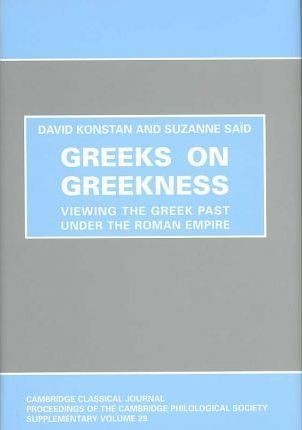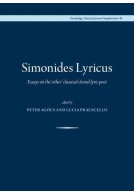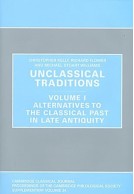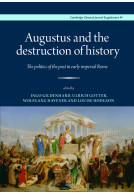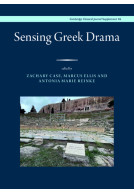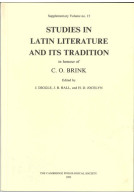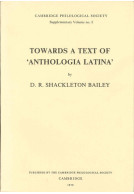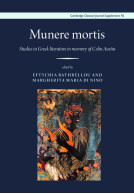Google Books previews are unavailable because you have chosen to turn off third party cookies for enhanced content. Visit our cookies page to review your cookie settings.
Greeks on Greekness (Hardback)
Viewing the Greek Past Under the Roman Empire
Imprint: Cambridge Philological Society
Series: Proceedings of the Cambridge Philological Society Supplementary Volume
Pages: 194
ISBN: 9780906014288
Published: 18th October 2006
Script Academic & Professional
Series: Proceedings of the Cambridge Philological Society Supplementary Volume
Pages: 194
ISBN: 9780906014288
Published: 18th October 2006
Script Academic & Professional
You'll be £22.50 closer to your next £10.00 credit when you purchase Greeks on Greekness. What's this?
+£4.99 UK Delivery or free UK delivery if order is over £40
(click here for international delivery rates)
Order within the next 10 hours, 23 minutes to get your order processed the next working day!
Need a currency converter? Check XE.com for live rates
(click here for international delivery rates)
Order within the next 10 hours, 23 minutes to get your order processed the next working day!
Need a currency converter? Check XE.com for live rates
Karl Marx observed that "just when people seem engaged in revolutionizing themselves..., they anxiously conjure up the spirits of the past to their service". While the Greek east under Roman rule was not revolutionary, perhaps, in the sense that Marx had in mind, it was engaged in creating something that had not previously existed, in part just through the millennia-long involvement with its own tradition, which was continually being remodelled and readapted. It was an age that was intensely self-conscious about its relation to history, a consciousness that manifested itself not only in Attic purism and a reverence for antique literary models but also in ethnic identities, educational and religious institutions, and political interactions with - and even among - the Romans. In this volume, which represents a selection of the papers presented at the colloquium, "Greeks on Greekness: The Construction and Uses of the Greek Past among Greeks under the Roman Empire," held at the Center for Hellenic Studies on 25-28 August 2001, seven scholars explore some of the forms that this preoccupation with the Greek past assumed under Roman rule. Taken together, the chapters in this volume offer a kaleidoscopic view of how Greeks under the Roman Empire related to their past, indicating the multiple ways in which the classical tradition was problematised, adapted, transformed, and at times rejected. They thus provide a vivid image of a lived relation to tradition, one that was inventive rather than conservative and self-conscious rather than passive. The Greeks under Rome played with their heritage, as they played at being and not being the Greeks they continually studied and remembered.
Other titles in the series...
Other titles in Cambridge Philological Society...







